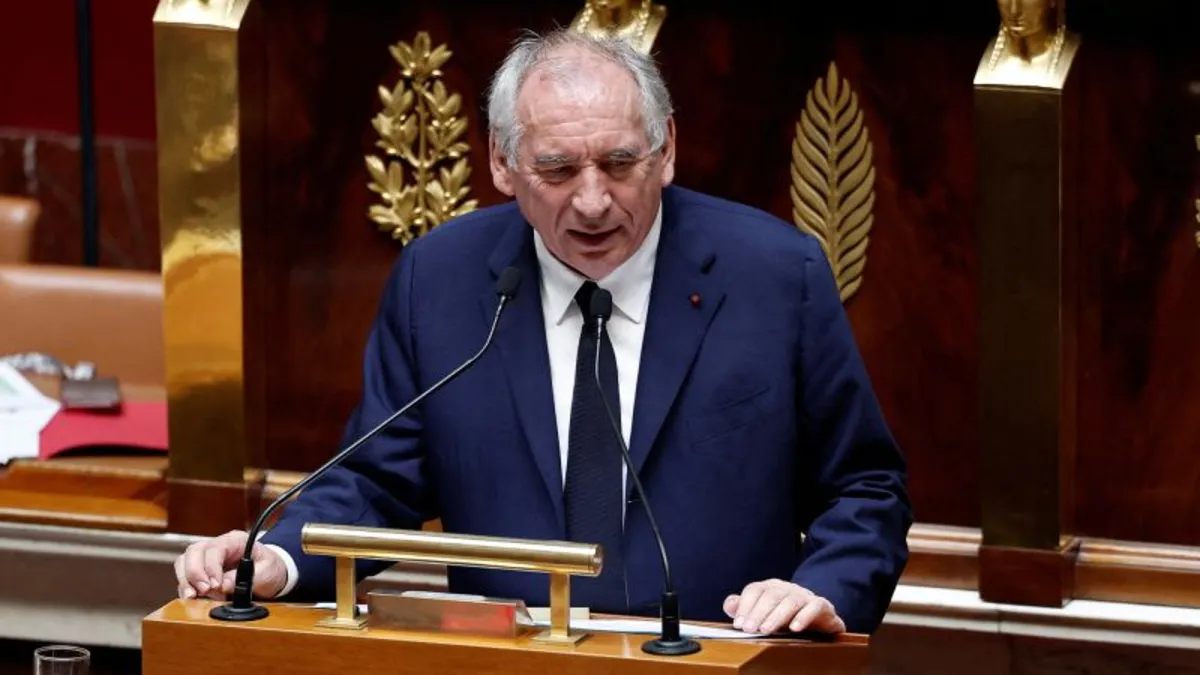
In a significant turn of events, French lawmakers voted on Monday to oust Prime Minister François Bayrou, thrusting the nation into a new political crisis. This development comes at a time when France is grappling with increasing economic strain and rising geopolitical tensions. With a total of 364 MPs voting against Bayrou and only 194 in favor, the vote effectively removed him from office after he called for a vote aimed at implementing an unpopular €44 billion ($51 billion) savings plan.
The savings plan proposed by Bayrou included controversial measures such as scrapping two public holidays and instituting a freeze on government spending. The overwhelming rejection of his leadership, with 364 votes against him far exceeding the 280-vote threshold needed to topple the government, has set the stage for a major political realignment in the country. Bayrou, who has served as Prime Minister for just nine months, follows in the footsteps of his predecessor, Michel Barnier, who lost a no-confidence vote last December.
French President Emmanuel Macron is expected to appoint a new prime minister in the coming days, according to the Élysée Palace. However, the departure of Bayrou leaves Macron with limited viable options amid the current political turmoil. Investors are already on edge, as evidenced by the rising yields on French government bonds, which have surpassed those of Spain, Portugal, and Greece—countries that were once central to the eurozone debt crisis.
The situation could worsen if France's sovereign debt rating faces a downgrade in a review scheduled for Friday, further jeopardizing its economic standing in Europe. Bayrou underscored the reality facing the government, stating, “You have the power to bring down the government, but you do not have the power to erase reality.” He emphasized that the burden of debt was becoming increasingly unbearable, which is a sentiment echoed by many citizens.
The roots of this political instability can be traced back to Macron's controversial decision last year to call a snap election. This move was largely influenced by the unexpected success of the far-right National Rally in the European Parliament elections of May 2024. As a result, Macron's party lost seats to both the far right and the far left, leading to a splintered parliament that has made governance increasingly challenging.
As Bayrou prepares to submit his resignation to Macron, the political landscape remains fraught with uncertainty. Front-runners for the prime ministerial position include Armed Forces Minister Sébastien Lecornu and Justice Minister Gérald Darmanin, but they will likely face an uphill battle in a parliament that is deeply divided. Even prior to the vote, there were calls for Macron to step down, although he has pledged to complete his term.
The political environment is further complicated by the opposition's unwillingness to support another centrist prime minister. Both the far right and the far left have indicated they would call for a vote of no confidence if a similar appointment were made. Naming a prime minister from another political faction could theoretically be an option, but such a choice would likely face fierce opposition from the opposing side.
For the next prime minister, the budgetary battles will be equally contentious. The Socialists are advocating for higher taxes on the wealthy and the reversal of Macron's tax cuts for businesses—demands that are non-negotiable for Les Republicains, the long-standing conservative party. Consequently, France's fiscal issues are expected to persist, leaving the nation in a precarious economic position.
Recent polling indicates that in the event of another snap parliamentary election, the National Rally could emerge victorious, with the left following closely behind and Macron's centrist bloc trailing significantly. The prevailing sentiment is that the far right may eventually gain power, whether in the near future or after the 2027 presidential election, although skepticism remains regarding their ability to resolve the country's ongoing dilemmas.
Public trust in the political class has plummeted, and anger is boiling over. The far left has called for nationwide protests on Wednesday under the banner “Bloquons tout” (“Let’s block everything”), with trade unions planning another demonstration on September 18. This wave of discontent unfolds against a backdrop of geopolitical instability, with ongoing conflicts in Ukraine and the Middle East.
The current turmoil in Paris poses a unique opportunity for international figures like Vladimir Putin and Donald Trump, who appear to relish in highlighting Europe’s vulnerabilities during this challenging time.